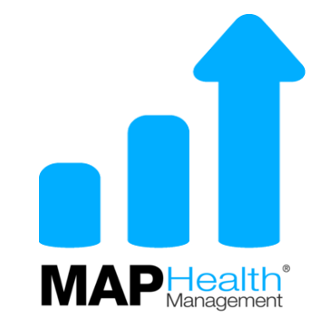Opioid Addiction: We Started It. We Need to Stop It
June 27, 2016 Jacob Levenson
As published in PsychCentral on June 27, 2016

The CDC also reported that opioids are most often used in more rural areas, which is likely due to two reasons: (1) citizens who reside in rural areas have a high incidence of diseases such as obesity and diabetes, both conditions that can result in needing pain medication, and (2) there is less access to specialized medical care in rural areas, and opioids may be prescribed more frequently to compensate for that.
Another interesting finding from the CDC, as reported on the website allgov.com, is that individuals who remain on opioids for more than 30 days are more likely to continue using them for three or more years.
Approximately half are prescribed a short-term, rather than a long-term, formulation of opioids, and short-term formulations are more likely to result in addiction.
According to a report by the Human Rights Watch (HRW), in the cases of U.S. veterans, patients die from overdoses in Department of Veteran’s Affairs (VA) hospitals at a rate twice that of the general population.
In 2010, more than one million vets were taking opioid medications, half of them chronically.
Tapering and Weaning
There have been reports on the lack of proper tapering and weaning patients off of opiates as well as the acknowledgement that it is of critical importance. Simply stopping these powerful narcotics can result in serious illness and, in some cases, death.
Take for example, the recent death of an Ohio man who was jailed for a probation violation. The young man, who was addicted to heroin, died of dehydration in his cell as his body fought the ravages of detoxing without proper medical assistance over the course of three days.
In fact, a 2010 study found that only 11% of substance users receive any type of professional treatment while jailed and fewer than 1% are given medical assistance as their bodies detoxify.
In the case of our vets, only one in three who become opioid dependent receive medical assistance or intervention as they detox.
In the HRW report, the VA had 38,000 patients who did not have access to the most effective treatment or care. In some cases, opioid prescriptions were being renewed without physicians seeing the patients, much of it based on the fact that healthcare is difficult to access for many vets who live in rural areas, and travel to hospitals or clinics is difficult.
Stigma hampers many individuals from discussing addiction or even inquiring as to whether or not what they are experiencing is addiction. Many patients may not realize they have become addicted and the onus is on the medical community to communicate, ask and inquire as to how patients are using these medications.
We understand that many physicians have over-prescribed these powerful pain medications, and while they indeed have a place for individuals in both acute and chronic pain, the percentages tell the story: American’s make up 5% of the world’s population and use 80% of the world’s opioids.
National Epidemic
Clearly, the disease of addiction has become a national epidemic, however the question has begun to emerge: Are we on the cusp of an equally concerning side effect to the addiction epidemic – how to handle tapering millions of addicted Americans from these narcotics?
How do we plan to properly wean addicted or dependent patients using professional intervention and help guide them away from the meds and toward a life of recovery and/or a life that is not mandated by the need for opioids?
Chronic pain is a fact of life for many, however successful management of chronic pain need not equate to millions of other individuals living, and dying, with addiction.
Last fall, a noted Denver-based pain physician and former president of the American Academy of Pain Medicine was planning to retire and began to taper patients off their use of opioids.
Dr. Richard Steig noticed that many of his patients refused to comply with even starting a tapering program. Dr. Steig’s patients were chronic opioid users, but not addicted, yet fearful of being taken off the powerful products and returning to a life of chronic pain.
Dr. Steig commented that the field has done a poor job in giving non-addicted people with chronic pain pathways to support opioid tapering. It only stands to reason that the millions of people who are addicted will indeed struggle to taper on their own without medical intervention.
A Call to Action
Physicians who prescribe opioids have an obligation to carefully screen their patients for all risks including the potential for misuse. Physicians should carefully follow recently issued guidelines on opioid prescribing and if, in spite of this rigorous adherence to these best practice guidelines, a patient begins to misuse the opioid that he or she not be abandoned (e.g. punitively discharged from their care), but rather be assisted in finding the appropriate level of care required to safely and effectively taper.
If a patient has developed a dependency syndrome, continued management may require a residential setting. Physicians of all specialties need to join addiction treatment teams in order to deliver the individualized care and proper treatment or long-term management their patients require.
Individuals who work to overcome addiction often speak of being held accountable to their disease and holding themselves accountable for the choices they make in their care and recovery. Physicians need to do the same.
Physicians are increasingly held accountable for prescribing these narcotics, but they need to be held accountable for helping wean the millions of Americans overusing and abusing these products off of them in a healthy and medically supervised way.
According to a recent article in the Huffington Post, Kathleen Frydl writes that Purdue Pharma, the manufacturer of OxyContin, has paid over $630 million in fines on a product that earned the company $31 billion in revenue.
Frydl goes on to write, “The company presented the addictive drug in 1995 as being far less addictive than its studies showed and only recently in the face of complete and ongoing regulatory failure of the FDA, the CDC has stepped in to provide new recommendations for the protocols on prescribing narcotic painkillers. While the dire circumstance of the opioid epidemic would seem to dictate more rigorous action…a political establishment under the sway of large corporate donors has yet to summon the will.”
Accountability
Accountability needs to enter the scene. Millions of Americans are addicted and because of stigma, fear and reluctance, many may not seek professional help.
Our medical community, including our prescribing physicians, needs to be proactive. A large pharmaceutical company touted a panacea over 20 years ago and since then there have been egregious repercussions. Millions of Americans need to be educated that addiction is a chronic brain disease and that they, or their loved ones, may be in over their head.
We must hold our physicians accountable to educating their patients, to communicating and asking the difficult questions and to making care readily accessible to veterans and the thousands of rural-based citizens.
The opioid epidemic is man-made. We started it and we need to stop it.
Sources
www.allgov.com U.S. doctors Prescribe Opiate Painkillers at Twice the Rate of any other Country…and 500,000 veterans are Dependent/U.S.: 5% of World Population; 80% of Opioid Consumption, July 2014
www.cdc.gov Prescription Opioid Abuse: CDC’s Primary Care and Public Health Initiative, Human Rights Watch Report
www.huffingtonpost.com Purdue Pharma: Corporate Fraud with a Body Count, May 2016
www.nationalpainreport.com Pain Medication – National Pain Report, Sept. 2015








